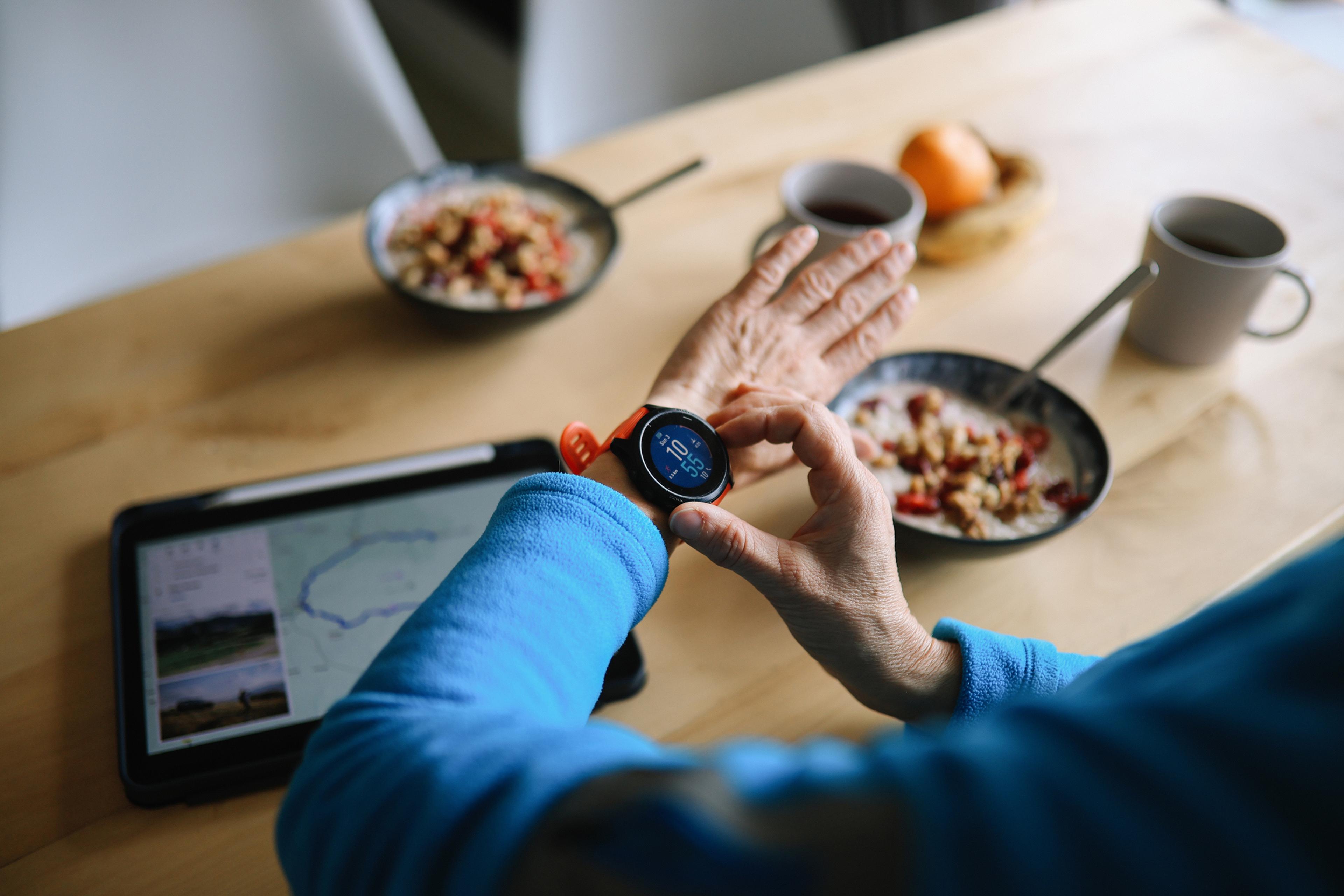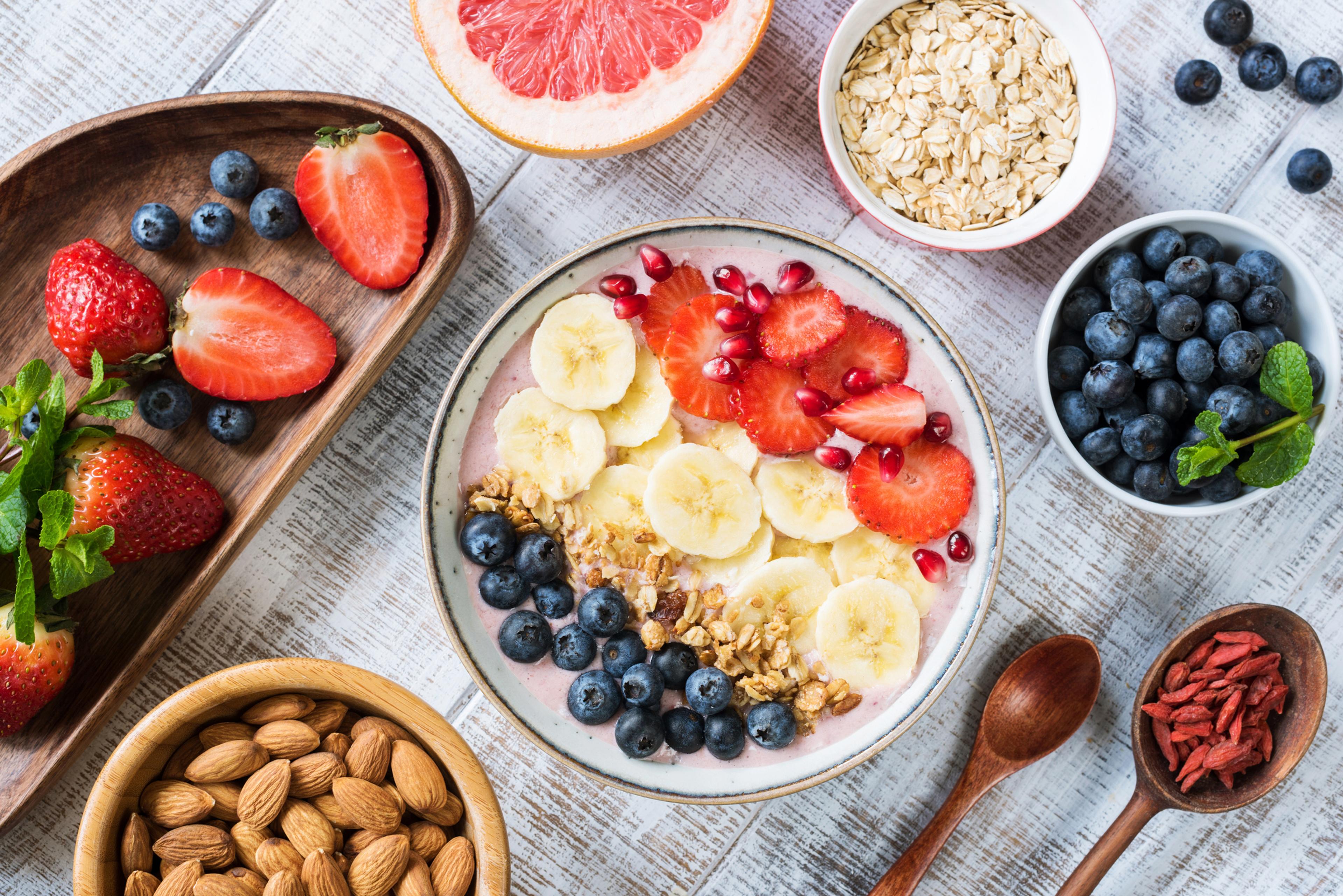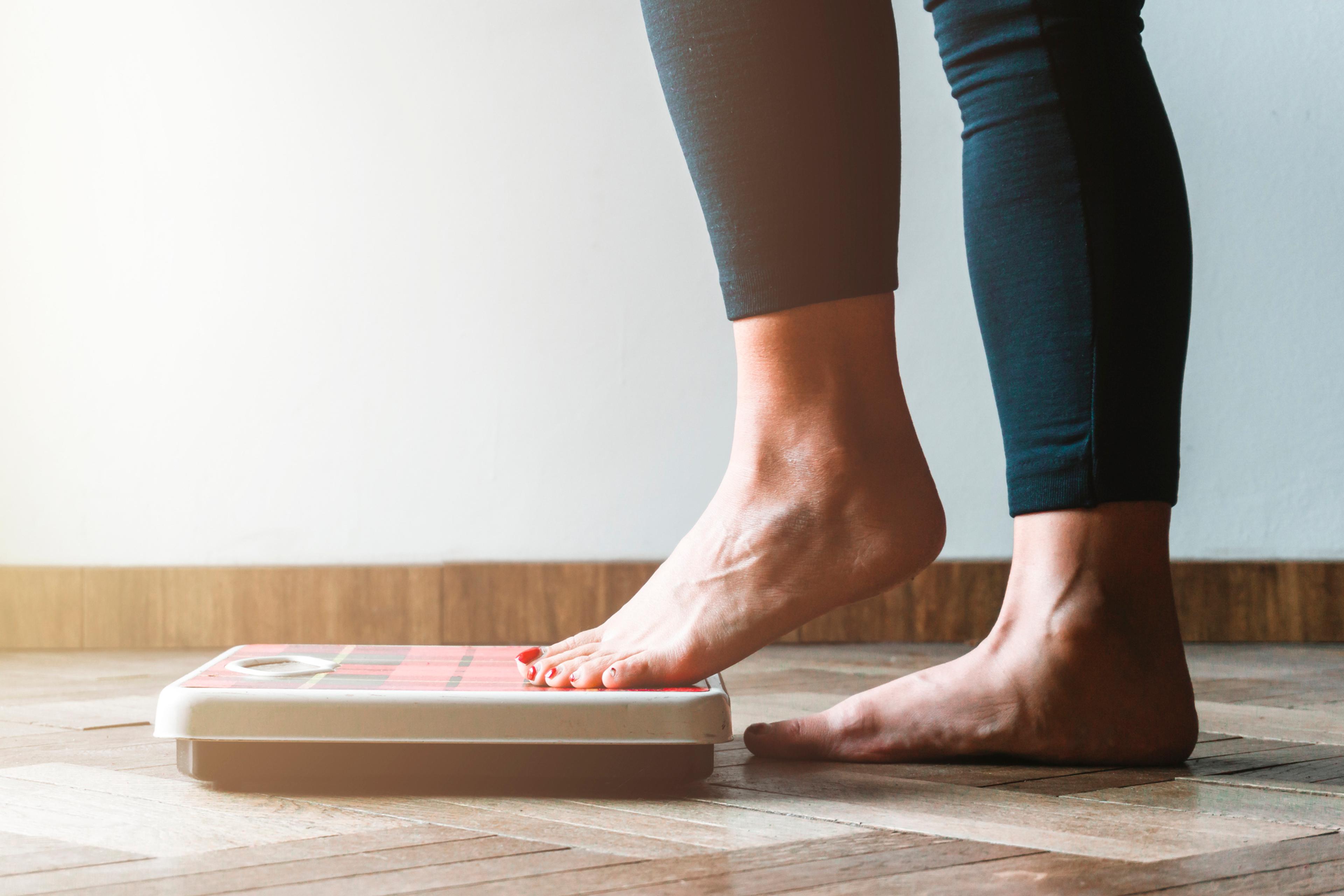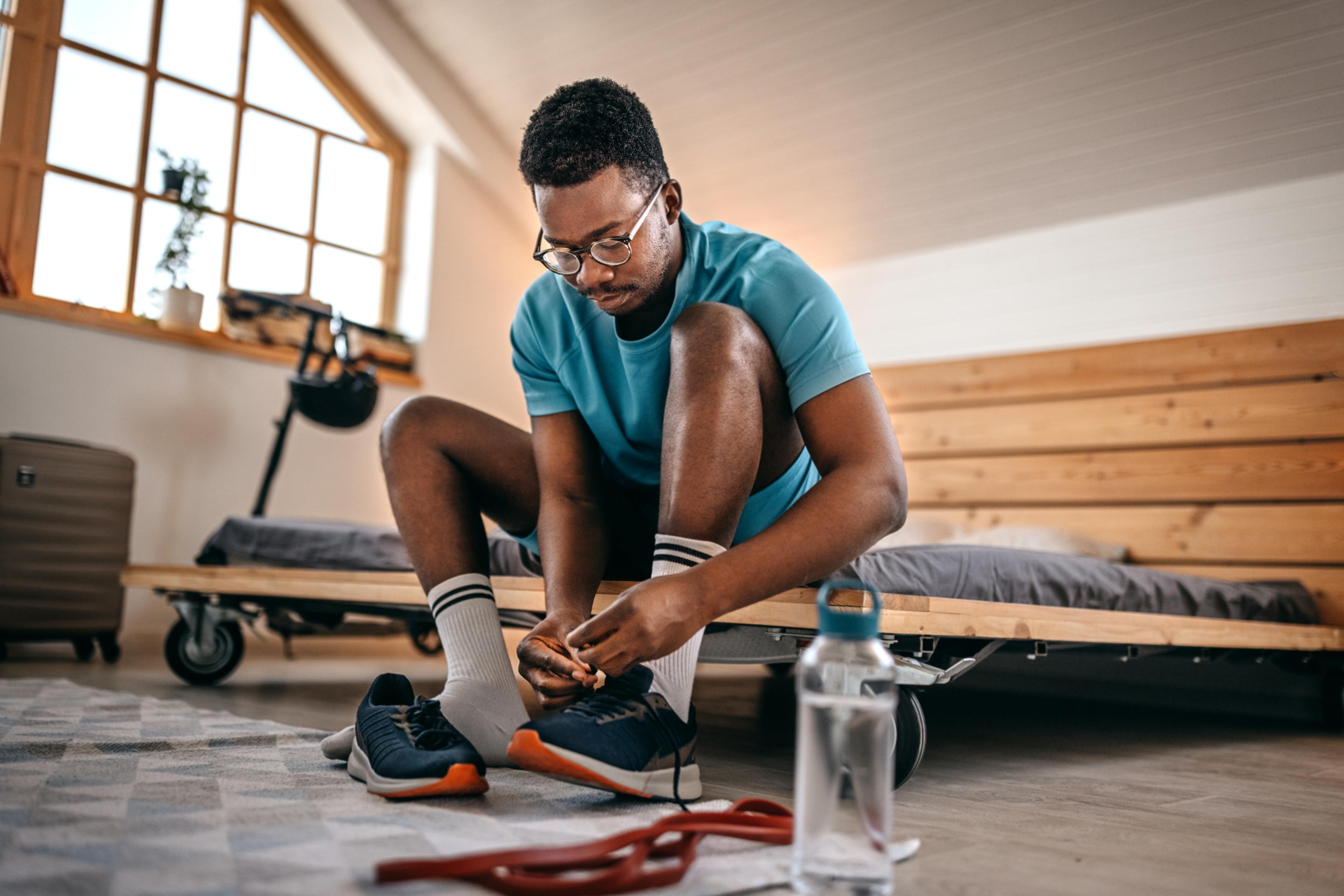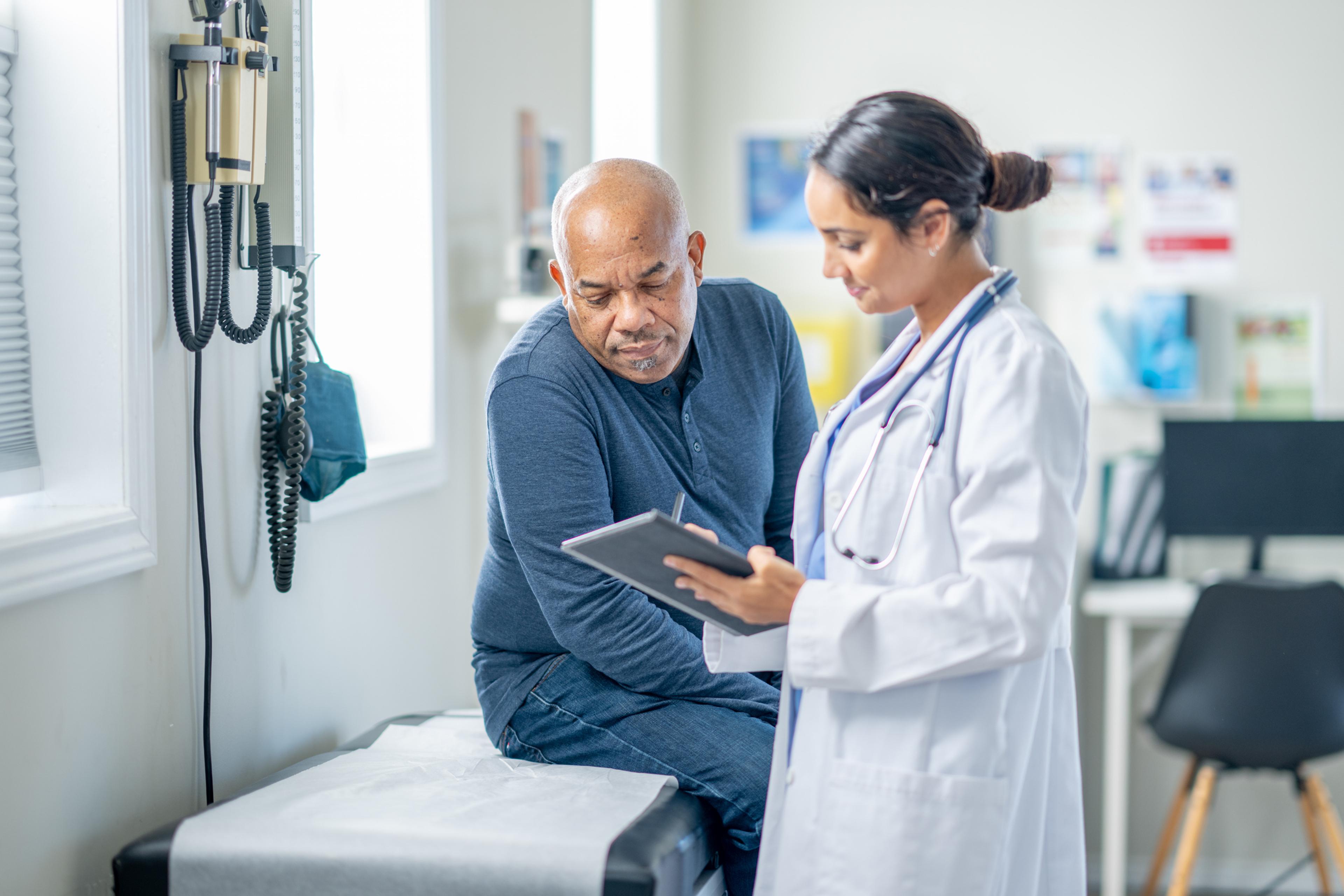Skincare Products to Avoid This Summer
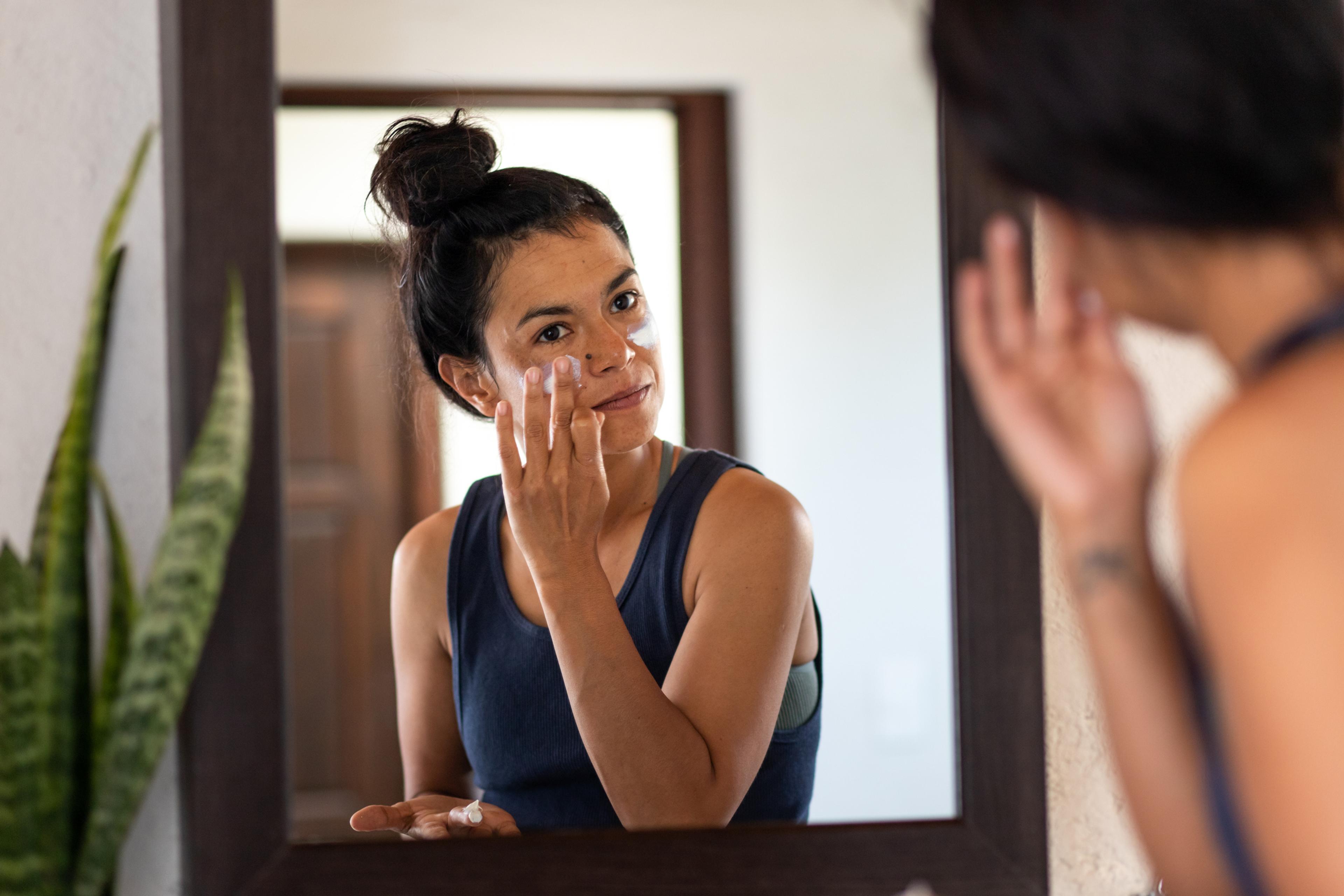
00:00
00:00
About the Show
- Why it's important to be cautious of certain skincare products in the summer
- Steps to take to protect your skin from sun sensitivity while using certain skincare products
- How to tell if a certain products causes sun sensitivity
- Alternatives you can use to reduce sun sensitivity
Transcript
Here is the full transcript of this episode. You can listen to the audio version on streaming platforms or watch on YouTube.
Did you know certain skincare products can make your skin more sensitive to the sun this summer? This is A Healthier Michigan Podcast, episode 161. And coming up we discuss skincare products to avoid this summer.
Dr. David Baird:
Thanks for having me, Chuck. I always look forward to these.
Chuck Gaidica:
Yeah, I do too, because there's so much good stuff that comes out of conversations with you. And this is counterintuitive, we tend to think of products that protect us when we go outside. But for the most part, a skincare routine should be something that's constant. Cleanser, moisturizer, sunscreen. But there are basics to the skincare routine. However, we're seeing more and more info that there are additional products that should be added to this, but now here we are, summer sun, some products might leave us more susceptible to the sun or may actually do some, I guess, maybe damage is too strong of a word. So what are the skincare products that we should maybe be avoiding during the summer months?
Dr. David Baird:
It's probably a lot more than you think, to be honest with you. A lot of these, what I would consider mainline medicines that you can pick up right over-the-counter would be the anti-aging products. And these would include anything that has a peeling agent in it. And I'm sure listeners have heard of alpha-hydroxy acids or glycolic acids. Those are going to be used for the middle aged people that want to keep their skin looking refreshed. Salicylic acid, also known as beta-hydroxy acids. And the nomenclature gets a little confusing. So I think I'll revisit that a little bit later in our conversation. Those are used to treat acne specifically. And benzoyl peroxide products that we all know about, remember from our teen years? That's an acne fighting agent that is in Clearasil and like medications. All of those things remove the outer layer of the skin and it's therapeutic. That's what they're supposed to do and that's how they help for their various applications.
But the removal of that outer layer of skin also causes sun sensitivity. And it's an interesting concept because a lot of people think, all right, I'm tan. I have that protection against UV radiation. But on a microscopic level, the skin actually thickens a little bit as a protective measure. And since these things are removing that outer layer of skin, that's where you can get some of that sun sensitivity and sunburn. So these are chemicals that are involved in a lot of different products. And then there's some prescriptions that people might be using and not think twice of. Retin-A is another thing that removes that outer layer of skin, causes sun sensitivity. And a lot of women and even men are on this after age 40. It's a refresher. It makes the skin look a little bit better, fine lines and wrinkles.
And then I would tell you there are some alternative things too that people may or may not be using that you would think because these are all natural, "Alternative products," they're not going to hurt me. These essential oils now have seemed to really catch on and people are using them for skin rejuvenation, for aroma therapy. And some of these even have some other purported benefits which are not really scientifically based. But these would include a lot of the citrus based oils such as lemon, lime, and something called bergamot, which is actually in the citrus family. These have chemicals in them that, back to your intro, would actually cause damage to the skin, can cause blistering. And those are things that really need to be watched.
Chuck Gaidica:
Well, there's so much you said there. The first thing that crosses my mind is a visual. If you ever got a sunburn as a kid or otherwise, you would never peel. Back in the day, that was the thing. Now everybody's thinking more consciously about avoiding that process. But you wouldn't want to get a tan or get a burn where you just peeled. And that's what you're saying about these products with the acids that you mentioned, you're taking maybe off a layer of the skin, now you're exposing, it's not fresh skin, but it seems to be a kind of skin that you wouldn't want to expose to the sun. It makes perfect sense. And yet you can buy this stuff over-the-counter, right?
Dr. David Baird:
Yeah. A lot of those products are easily available with multiple different manufacturers.
Chuck Gaidica:
Yeah. So how do we know? Because with all that's going on, I mean I'm seeing everything from infomercials to stuff online. Buy this stuff, just dab a few dabs on the bags under your eyes, stuff disappears. If it's too good to be true, it probably is. But you see this all the time. And how do we avoid getting into, is it really we have to be more educated now to read the sides of over-the-counter packaging like we do a can of black beans? I mean we just need to start looking at what we're using.
Dr. David Baird:
I think the simple answer is that we have to get used to reading these ingredient labels. And these are typically going to be listed right off the bat. These are going to be listed under the active ingredients, so you don't have to go through these multi-syllabic chemical names that are confusing to everybody. But specifically over-the-counter products that a lot of people are just going to be able to pick up easily at any one of your pharmacies, it's going to be those glycolic acids, those salicylic acids, retinol, which is essentially over-the-counter Retin-A. But that's available in a variety of products that people may use as anti-aging products. And you're going to have to look at those labels. Benzoyl peroxide. These are the ones that are easily got over-the-counter. And you're going to have to look at those labels and see if those are ingredients.
Chuck Gaidica:
And it doesn't mean that you shouldn't use them because for some people they're finding great success or they've got age spots and even you've told them, "This is a good thing to use." It really is more a matter of being cautious about exposing yourself to the sun while using them, right?
Dr. David Baird:
Yeah. And as I was thinking about our discussion today, I have to tell you, you kind of stole a little of my thunder because we'll get a lot of patients come in and they'll read the list of side effects and say, "Well, I'm not going to use this during the summer." I would really discourage that kind of thought process because if you're on a treatment plan, even if it's something over-the-counter, stay with it. And especially if your doctor's telling you to do it, stay with it. And then just use your better judgment as far as sun protection, whether it's with clothing or with the sunscreens that we've talked about in the past.
Chuck Gaidica:
So this idea of acne, if you're using a product that's been prescribed for you that deals with acne, is that just an immediate red flag that you should be cautious about sun? Is that how you would advise patients that you see in your practice?
Dr. David Baird:
Yeah, I will tell you, so many of the medications, now we're talking prescriptions. These are very sun sensitizing. Whether it's some of the oral medications, a lot of the topical medications. But in particular, some of the antibiotics that we use to treat acne, really make people prone to sunburn. And some of the stronger acne medicines like Accutane, people can really get bad sunburns on that if they're not protecting themselves.
Chuck Gaidica:
I don't really know, so is it purely we're thinking about sunburn problems or are there other reactions that can occur with all the stuff we've talked about so far?
Dr. David Baird:
It's mainly going to be susceptibility to sunburn. So if you have the type of skin where you might not burn for half an hour in the noonday sun, that might be cut back to 10 to 15 minutes. And I'm not saying you need to test those outer limits. Don't read me wrong on that at all. The kind of stranger medicines though. And I'll say more the alternative things that a lot of people may or may not be using. Some of these essential oils. Those will cause blistering. So those are ones that I would tell you to avoid, especially if they're being used for alternative purposes, to avoid those if at all possible during the summer months.
Chuck Gaidica:
Well, this is so interesting you mentioned these oils and I think you mentioned orange and lemon in there. I was just at one of the big box stores and I'm trying to find a product to help me get a grease stain off of concrete bricks in the backyard. And I'm telling you, there were so many that have orange peel. It's like the Goo Gone stuff. If you read through some of the ingredients on these things, they're using orange peel oil or orange oil in the product. And as you're saying this, I'm thinking, oh my gosh, if that's the best product for me to get to get something off my driveway or bricks, I don't know if that's a good idea to put on my skin.
Dr. David Baird:
I actually saw a case where a guy was using this on his driveway in one of those little spray bottles and he received a chemical burn on his legs because these products are very caustic to the skin. Now you throw in that potential with the interaction with sun and the chemical is called psoralen, which really sun sensitizes you and can cause severe blistering.
Chuck Gaidica:
So for many people, this is not maybe a problem. They know they're going to use their skincare product at night or they're in the house and it's after dark. That's not a thing. But if you are looking for alternatives so that you're not getting exposed to even the possibility of these problems or you like to garden and you put something on in the morning, you want to be out, what are the alternatives that we can all look to that we can continue using skincare products that may not increase the sun sensitivity during the summer?
Dr. David Baird:
Well, if you really want to be sure about not having that sun sensitivity, unfortunately you're going to have to stop those medications. The reasons they're making you sensitive is because they're having their therapeutic effect. Taking off that top layer of skin that's always going to make you more sun sensitive. So I would like to think of it as really not stopping those products, as we discussed, just to use your better judgment as far as sun protection. And that doesn't have to be just sunscreen. We talk about hats, we talk about clothing and these new synthetic fabrics that you see a lot of professional golfers wearing, especially on the LPGA. They have these sleeves that you would think back in the '80s and '90s when we were wearing these heavy cotton clothes that you're going to be hot. These synthetic things are very cooling. They're light, they protect you from the sun, so they have that tight weave that you're looking for. So don't rule out using clothing, "Long sleeves and long pants." You can wear light material, still protect yourself from the sun and be cool.
Chuck Gaidica:
The ones that I have are shirts. They're long sleeve, but you're right, they're real thin. But they also come in real bright colors. So for me to ride a bike, it's counterintuitive on an 80 degree day to wear a long sleeve shirt. You don't notice it. It's just as easy to do that as it is a short sleeve T-shirt.
Dr. David Baird:
Agree. These new modern materials are really fantastic. Whether you're training outside, getting ready for a race, playing golf, fishing, there's a lot of things that you can do.
Chuck Gaidica:
So I have a question because as a rule of thumb, is there a time... So maybe it's not an internal med, you're not taking an oral medication, but you are applying product. A lot of people get those products used on them in a professional sense, they're going to get a facial. And so for me, I'm not a mani-pedi guy and I don't normally get facials, so I can't relate to it directly. But if people do that, is there a rule of thumb that you would offer as timing that if you've had a peel or something that's been applied, don't expose yourself to the sun for how many hours, how many days? Is there such a thing?
Dr. David Baird:
Well, if you look at the layers of skin, the top layer of skin, the epidermis, from the bottom of the skin, which are the living cells, and as they progress up towards the top or the outer part of our skin. It takes about 40 days for that to happen. Now it's much longer than people think. Now if you strip off that top layer, you're talking probably days. And if you're removing the top layer, the skin responds by sometimes turning over a little quicker too. So if you had a chemical peel or a facial of some type, you're looking at probably about a week. When we do laser procedures and stuff on patients here, we tell them you really have to be careful for that first week or so afterwards. And if there's a little more damage deeper, then you're may be looking at two weeks up to a month. So I would tell you, if you're not having a very deep procedure done in your example, the facials, which are very superficial done at any salon, you'd be safe for about a week.
Chuck Gaidica:
And that idea of something more mechanical and high tech like a laser or I guess what is it? Is it a laser?
Dr. David Baird:
There are lasers, there's various light-based therapies, there's actually physical ways the laser can actually burn the skin off in some cases. So yeah, there's a lot of different techniques.
Chuck Gaidica:
Yeah. And so you'd have to get the advice. Obviously you would hope that that's being applied by a professional like yourself, so you'd be able to offer that advice of how to protect yourself?
Dr. David Baird:
For sure. And I always encourage people, I think some people think, oh, the doctor's busy and this might be a dumb question. Don't think that way. We're here to answer the questions. And if you don't have that knowledge, you could do some damage.
Chuck Gaidica:
So if I have had some kind of chemical peel or something that's done, what you're saying, takes off that top layer, simply applying a sunscreen is not really going to offer me tremendous protection or am I wrong?
Dr. David Baird:
No, that would be sufficient. One thing that a lot of people don't do though... Well, two things, I should say. Application prior to being out in the sun, that sunscreen has, especially if it's a chemical blocker, it has to bind to what it's supposed to bind to. So 20 minutes prior to being outside, that's when you want to apply it. And then what everybody forgets to do, including myself, is reapply. And that's dependent on your physical activity level. So if you're just walking the dog and it's not a strenuous walk, you got about two hours out of that sunscreen that you applied. But if you're sweating, if it's a hot day on the golf course, if you're training for a triathlon and you're sweating heavily, you're only getting an hour out of something like that. You get out of the pool after a swim, you have to reapply. And we all forget about it.
Chuck Gaidica:
Well, not only that, you say this 20 minutes in advance thing, and I'm thinking to myself, I've done that where I know I'm going out, so I'm doing it at a sink near the bathroom. But for a lot of people, this is spray and go. I mean, you've already gone. And you're doing your legs and your arms, and then boom, I'm in the sun. So that idea of back timing with 15 to 20 minutes makes a lot of sense.
Dr. David Baird:
Think about it. Some is better than none. So if you're putting it on and running out the door, I would rather you do that than setting the timer on your phone and saying, "Oh, it's been 20 minutes, now I can go out."
Chuck Gaidica:
Right. Are there any other alternatives that are natural that we should be thinking about? Or any alternatives at all that you would suggest that we should be thinking about using in place of these other items or otherwise?
Dr. David Baird:
I would stick with the items. I really think that that's the best way to go on this. You just have to be aware and be smart. Use your best judgment.
Chuck Gaidica:
Yeah. All right. Well, Dr. Baird, it's good to see you again. Thanks for all the advice. Because this is the season, right?
Dr. David Baird:
It sure is. Thanks for having me, Chuck. I appreciate it.
Chuck Gaidica:
Oh, sure thing. That's Dr. David Baird and he's a dermatologist in Farmington, Michigan. Grew up in the Detroit area, so he understands the Michigan sun. And we tend to think, well, this isn't Florida. What do we have to worry about? Well, you get out on a boat this season or you could do two hours of bringing in the bark mulch, and we all start to understand Michigan sun. Thanks for listening to A Healthier Michigan Podcast. It's brought to you by Blue Cross Blue Shield of Michigan. If you like the show, you want to know more, you can check us out on our refreshed website, ahealthiermichigan.org/podcast. You can leave us reviews or ratings on Apple Podcast or Spotify. You can also follow us on Facebook or Instagram or Twitter. And you can get all the old episodes, all these new episodes as well. Take them with you on your walks with a dog. On your smartphone, you can use your tablet. Be sure to subscribe to us as well on Apple Podcast, Spotify or your favorite podcast app. I'm Chuck Gaidica. Stay well.

